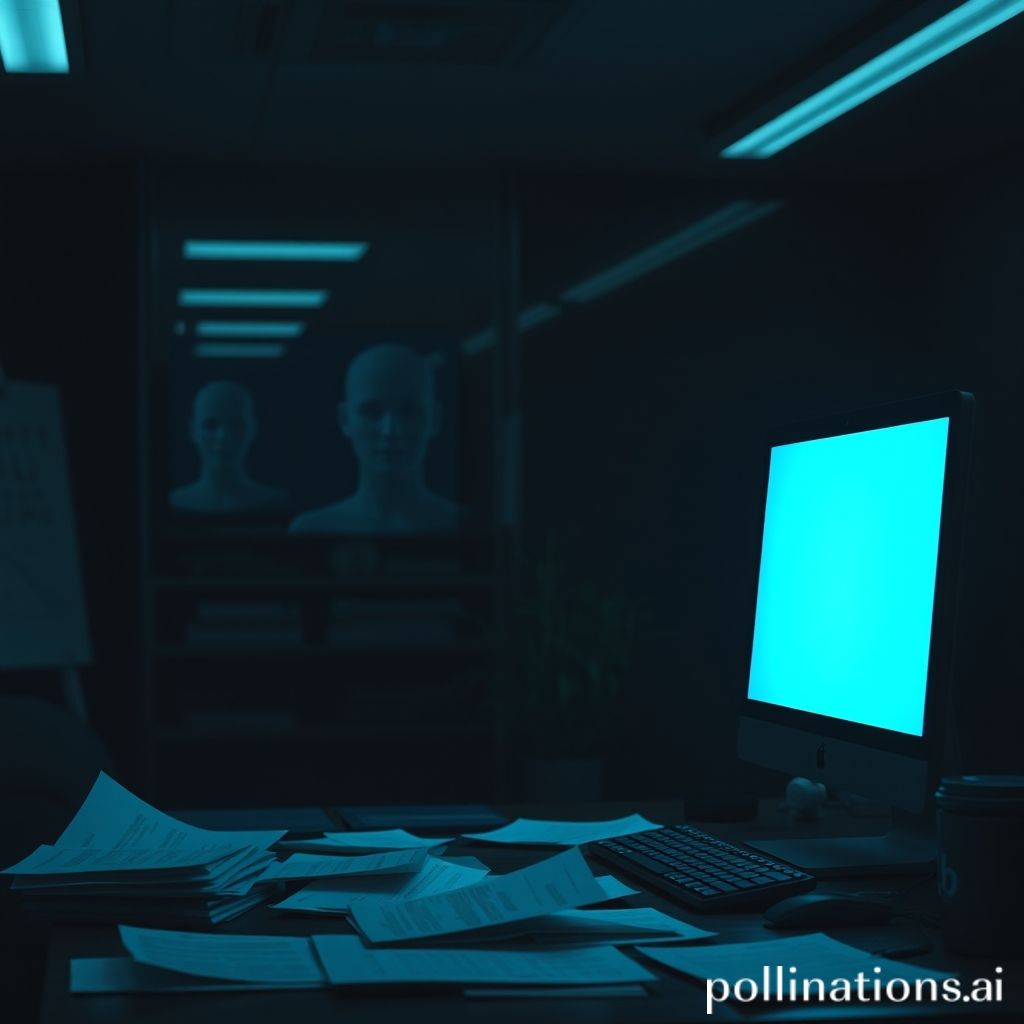Table of Contents
- Introduction
- Potential loss of creativity and originality in writing
- Reliance on AI may lead to plagiarism concerns
- Difficulty in understanding contextual and nuanced writing
- Lack of human touch and emotional intelligence in AI-generated content
- Potential for biased or inaccurate information due to AI algorithms
- Conclusion
- Frequently Asked Questions
Introduction
Artificial Intelligence (AI) has made significant advancements in various fields, revolutionizing the way we live and work. One area where AI has gained notable attention is content creation. AI-powered writing tools can quickly generate articles, blog posts, and even novels, promising efficiency and convenience. However, there is a dark side to AI writing that often goes unnoticed.
While AI writing may seem like a blessing, it raises concerns about the authenticity and quality of the content produced. In this article, we delve into the downsides of artificial intelligence in content creation, exposing the potential pitfalls and ethical dilemmas associated with this emerging technology.
Join us as we explore the implications of AI-generated content, examining issues such as plagiarism, biased narratives, loss of creativity, and the impact on human writers. Discover how AI writing tools have the power to shape information, manipulate perception, and even disrupt industries. Are these advancements in AI writing truly beneficial, or do they pose a threat to the authenticity and livelihood of human authors? Strap in as we uncover the hidden aspects of AI writing and shed light on its darker side.
Potential loss of creativity and originality in writing
Well, let me tell you, folks, there’s a downside to this whole AI writing thing. You know, it’s like a two-edged sword, cutting through the fabric of creativity and originality. Picture this: you’re sitting at your computer, trying to conjure up the perfect words to express yourself, to paint a vivid picture in the minds of your readers. But suddenly, you come face to face with the cold, calculating grip of AI software.
It’s like a thief in the night, snatching away your innovative thoughts and replacing them with generic, cookie-cutter content. It’s like trying to capture a butterfly in a net, only to find out it’s made of pixels and algorithms. Talk about a buzzkill, am I right?
Now, don’t get me wrong, technology can be amazing. It can help us streamline tasks, improve efficiency, and even bring a touch of magic to our lives. But when it comes to writing, well, some things are better left to the human touch.
There’s a certain artistry, a soulful connection that comes from the mind and heart of a writer. It’s like a dance between ideas and emotions, weaving together words that resonate with our very essence. It’s what makes our stories unique, our voices distinct.
So, my friends, let’s not let the allure of AI overshadow the value of originality and creativity. Let’s embrace the imperfections, the quirks, the human touch. After all, it’s the imperfections that make us who we are, and it’s the human touch that breathes life into our words.
Reliance on AI may lead to plagiarism concerns
So, you know, relying too much on AI writing can have its downsides, ya know? One of them, believe it or not, is the issue of plagiarism. Picture this: you’re a writer, pouring your heart and soul into creating a masterpiece. You’re slaving away at your keyboard, making sure every word is just right. But suddenly, you find out that your brilliant work has been copied and pasted, word-for-word, by someone who’s using an AI writing tool. It’s like a slap in the face!
Now, I’m not saying that AI deliberately sets out to copy and steal, but sometimes it can happen unintentionally. You see, AI is like a sponge, absorbing vast amounts of information from the internet. And while it’s programmed to generate original content, it can inadvertently regurgitate parts of existing works without giving proper credit. It’s like the AI doesn’t even know it’s commitin’ a crime, poor thing.
So, what does that mean? Well, it means that writers and content creators need to be extra cautious. They gotta double-check their AI-generated content to make sure it’s not crossing any lines. And they also need to be vigilant when it comes to protecting their own intellectual property. After all, no one wants to see their hard work gobbled up by an AI monster, without gettin’ the recognition they deserve.
Difficulty in understanding contextual and nuanced writing
So, picture this: you’re reading an article written by a fancy-schmancy AI, trying to make sense of what it’s saying. But hold your horses, because understanding the context and nuances of AI writing can be like navigating through a maze blindfolded.
It’s like throwing a dart at a moving target – you never know if you’ll hit the bulls-eye or end up way off track. And that’s where the downsides of AI writing rear their ugly heads.
Forget about reading between the lines or picking up on subtle cues. AI writing might leave your head spinning, like a top on a carnival ride. You see, these intelligent machines struggle with understanding the intricate dance of language.
Imagine trying to explain a complicated joke to a robot. It would be like teaching a fish to ride a bicycle. While AI can churn out words at lightning speed, capturing the richness of human expression is a whole ‘nother ball game.
Without contextual awareness, AI’s writing can resemble the ramblings of a mad poet, nonsensical and disconnected. It’s like trying to fit a square peg in a round hole – it just doesn’t fit.
Lack of human touch and emotional intelligence in AI-generated content
So here’s the thing about AI-generated content, it lacks that human touch, ya know? It’s like reading a letter from your long-lost cousin Joe, but then realizing it’s actually just a bunch of zeros and ones behind it. There’s no heart, no soul, no emotions infused in those words.
Now, don’t get me wrong, AI has come a long way. It can churn out articles faster than a cheetah chasing its prey. But when it comes to capturing the essence of human emotions, well, it falls short like a pancake that’s been sitting out for days.
Imagine reading a blog post about the devastating effects of climate change, and instead of feeling a deep sense of urgency and concern, you’re left with a bland description that fails to convey the gravity of the situation. It’s like watching a fireworks show without the fireworks, just a dull explosion of words.
But hey, let’s not forget the irony here. We created AI to make our lives easier, to save us precious time and effort. And now, we find ourselves craving that human touch, that emotional connection that only real writers can provide.
Potential for biased or inaccurate information due to AI algorithms
Now, let me tell you something about AI writing that might leave you scratching your head. You see, these algorithms can churn out words faster than a cheetah on roller skates. It’s impressive, no doubt about it. But here’s the kicker – they can also be a breeding ground for biased or downright inaccurate information. Yep, you heard me right.
Picture this: you’re searching for the latest news on climate change, and you stumble upon an article generated by AI. Sounds convenient, right? Well, hold your horses. The thing is, these algorithms have a knack for picking up biases, whether it’s from the data they’re trained on or the preconceived notions of their creators. So, what you end up with is an article that may not present a balanced view or accurate facts.
It’s like a game of telephone gone wrong. You know, where one person whispers something to another, and by the time it reaches the last person in line, it’s completely twisted? AI writing can be a bit like that.
So, my friend, next time you come across an AI-written piece, take it with a pinch of salt. It’s always good to cross-check the information with reliable sources and be aware of the potential for biases and inaccuracies lurking beneath the surface.
Conclusion
Downsides of AI Writing: Loss of Creativity and Biased Information
The rise of AI writing brings with it certain drawbacks that we cannot ignore. One major concern is the potential loss of creativity and originality in content creation. While AI can generate content efficiently, it often lacks the artistic touch and soulful connection that human writers bring. The human touch is what makes our stories unique and our voices distinct.
An additional downside is the possibility of biased or inaccurate information. AI algorithms, despite their impressive speed, can inadvertently amplify biases present in the training data or the creators’ biases. This can lead to the dissemination of misleading or discriminatory content.
However, it’s important to note that AI writing tools, when used responsibly, can still be beneficial. They can assist in streamlining tasks and saving time. To stay ahead in the digital age, it’s crucial to embrace the right tools and technologies.
That’s where WPHorde comes in. WPHorde is an excellent AI writing tool that combines advanced technology with a human touch. With WPHorde, you can harness the power of AI while still preserving creativity and originality in your content. Don’t get left behind in the ever-evolving digital landscape – embrace WPHorde and take your content creation to new heights.
Click here to learn more about WPHorde: https://wphorde.com

